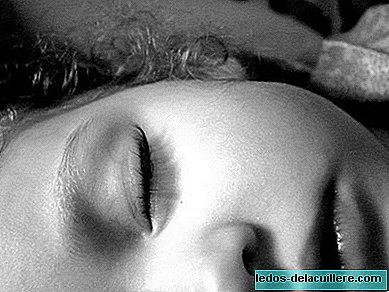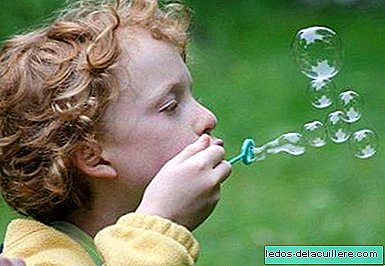
We have already spoken many times about attachment and its relationships with the development of our children and how it can influence the future of society.
According to a recent report published by the Sutton Trust, a London-based institute specializing in research publications on education and social mobility, researchers from Princeton, Columbia, the London School of Economics and Political Science and the University of Bristol have discovered in a study to more than 14,000 children who Four out of ten children under the age of three lack a secure attachment with their parents.
According to these researchers, a child without strong ties to his parents, without this attachment to us, are more likely to face educational and behavioral problems in the future, such as aggressiveness, and challenging and hyperactive behaviors as adults.
The attachment is transmitted when the child cries asking for food, arms, caresses or being accompanied and we respond consistently We convey to you the assurance that you are appreciated and respected, that you have our consideration and that you have the right to wish to feel good.
When this happens, children learn to manage their own feelings and behaviors. These effective links with their mothers and fathers provide these children with a foundation from which they can prosper in the future. Affirms Sophie Moullin of the Office of Population Research at Princeton University.
The report uses data collected by the Early Childhood Longitudinal Study, a nationwide study in the US. and that collects data from more than 14,000 children born in 2001. The researchers also reviewed more than 100 academic studies for its realization.
The analysis showed that 60% of the children were able to form strong ties with their parents which helped a strong social, emotional and cognitive development that will help them to be stronger in situations of poverty, family instability, parental stress and depression In addition, if children grow up in poverty, they have a strong attachment to parents, and are two and a half times less likely to show behavioral problems at school than other children in similar situations but have not developed these bonds.
On the other hand, children who do not have these ties are more likely to have poorer language and behavior before entering school. These effects will accompany these children throughout their lives and will be more likely to leave school early without proper training or employment, researchers say. It is very likely that children who grow up in poverty, with poor attention from their parents and an insecure attachment before the age of four, drop out before completing their training.
Of this 40 percent of children who do not have secure attachments, 25 percent avoid their parents when they are upset (because their parents ignore their needs), and 15 percent resist their parents because they cause distress .
"This report clearly identifies the fundamental role of secure attachment in reducing that school gap and improving children's life opportunities. More support from social services, children's centers and local authorities could help parents to improve the way they relate to their young children and could play a role in reducing this gap, "said Conor Ryan, director of research at the Sutton Trust.
Susan Campbell, professor of psychology at University of Pittsburgh, which studies the social and emotional development of young children and infants, states that insecure attachments arise when primary caregivers are not "in tune" with the social cues of children, especially their cries of distress during childhood.
The researchers argue that many parents - including middle-class parents - need more support to be able to properly raise their children, including improvements in family reconciliation and an economic improvement via tax cuts and similar aids.
It seems that this report confirms what many educators, parents, teachers and pediatricians have been saying for some time. A child who grows up in a safe environment, an environment where he knows that if he has a problem, he has someone behind to help him, they end up becoming self-confident adults and more prepared to face the difficulties of everyday life. The problem is that as always, policy makers, as well as the institutions they lead, will turn a deaf ear when applying the necessary measures to solve these problems. A more prepared society is required to give families time and space so that they can educate their children and give them all the attention they deserve.
We need better conciliation policies, or rather, we need "some" conciliation policy and we need you to help us to know which is the best way to go with our children. But we risk a very, very black future.
If you want to know the report better you can find it here.












